Reviews
George Cukor
USA, 1939
Credits
Review by Josh Bell
Posted on 06 May 2012
Source 35mm print
Categories TCM Classic Film Festival 2012
Both horribly sexist and a landmark of cinematic feminism, George Cukor’s The Women is as deeply troubling as it is phenomenally entertaining. Based on the play by Clare Booth Luce, and with a screenplay by Anita Loos and Jane Murfin, The Women celebrates sisterhood and female solidarity, while wallowing in cattiness and competition for male attention. Cukor’s cast features no male actors, and yet the unseen male characters often motivate the action far more than the women onscreen. The uniformly strong performances ease some of the discomfort, since stars like Norma Shearer, Rosalind Russell and Joan Crawford bring such verve to their characters that it’s easy to imagine their subjugating themselves to men as a strange sort of empowerment rather than the oppression it really is.
And even along the way to her eventual disingenuous reconciliation with her philandering husband, Mary Haines has a lot of empowering moments, starting with the way she deflects the gossipy tendencies of her circle of friends, led by the delightfully nosy Sylvia Fowler. Ever the busybody, Sylvia delights in spreading the story of Mary’s husband Stephen’s infidelity with shopgirl Crystal Allen, but she’s also a fierce defender of her friends’ honor when the need arises. Mary’s narrative arc reinforces traditional domesticity, as she has to learn to forgive her husband and understand that tolerating affairs is a wifely duty, but Sylvia gets to be more nontraditional, boldly moving on from her husband and ruthlessly rooting out any supposed friend who doesn’t contribute to her happiness.
Shearer’s warm, nurturing performance as Mary contrasts with Russell’s brash portrayal of Sylvia, but both of them are meek lambs compared to Crawford as Crystal Allen, a devious schemer who also learns that a woman’s place is supporting her husband. Unlike Mary, though, Crystal doesn’t take those lessons to heart, and while the movie condemns her dishonest, adulterous ways, she’s also one of the few characters who’s allowed to live on her own terms without having to conform to the moral standards of the time. Crystal may be the movie’s villain, and a total bitch, but her bitchiness frees her from the prescribed roles that everyone else has to play.
All of these complex power dynamics are wrapped up in a movie that is just an absolute joy to watch, thanks to the sparkling screenplay, charismatic performances and assured direction. Cukor juggles his massive cast of women masterfully, giving minor characters moments to shine and darting the camera here and there among squabbling rivals. The opening tour through a ridiculously lavish Manhattan salon is nothing short of extraordinary, with bits and pieces of information filtering through overlapping dialogue as characters gab while getting their hair done, having a manicure or engaging in absurd exercise routines.
The most impressive scene in the entire movie doesn’t even feature any of the main characters, as two members of Mary’s household staff re-create the climactic fight that breaks up Mary’s marriage to Stephen. Mary’s maid and cook manage to convey all of the emotion and drama of the fight while recounting it secondhand, offering insights into their own characters along the way. Although Mary and Stephen are destined to get back together and sweep their problems under the rug, Cukor manages in one scene to show how their marital discord represents potential empowerment and inspiration for other women. That applies to the movie as a whole, which may send the message that a woman belongs by her husband’s side, but also shows that the only way for that to work is if she actively chooses to be there.
More TCM Classic Film Festival 2012
-
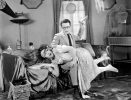
Girl Shy
1924 -
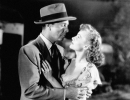
Cry Danger
1951 -
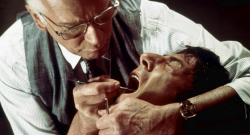
Marathon Man
1976 -
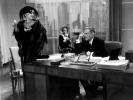
Counsellor at Law
1933 -

Black Sunday
1977 -
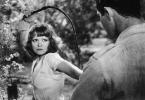
Call Her Savage
1932 -
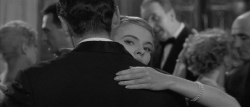
Bonjour Tristesse
1958 -
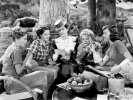
The Women
1939
We don’t do comments anymore, but you may contact us here or find us on Twitter or Facebook.



